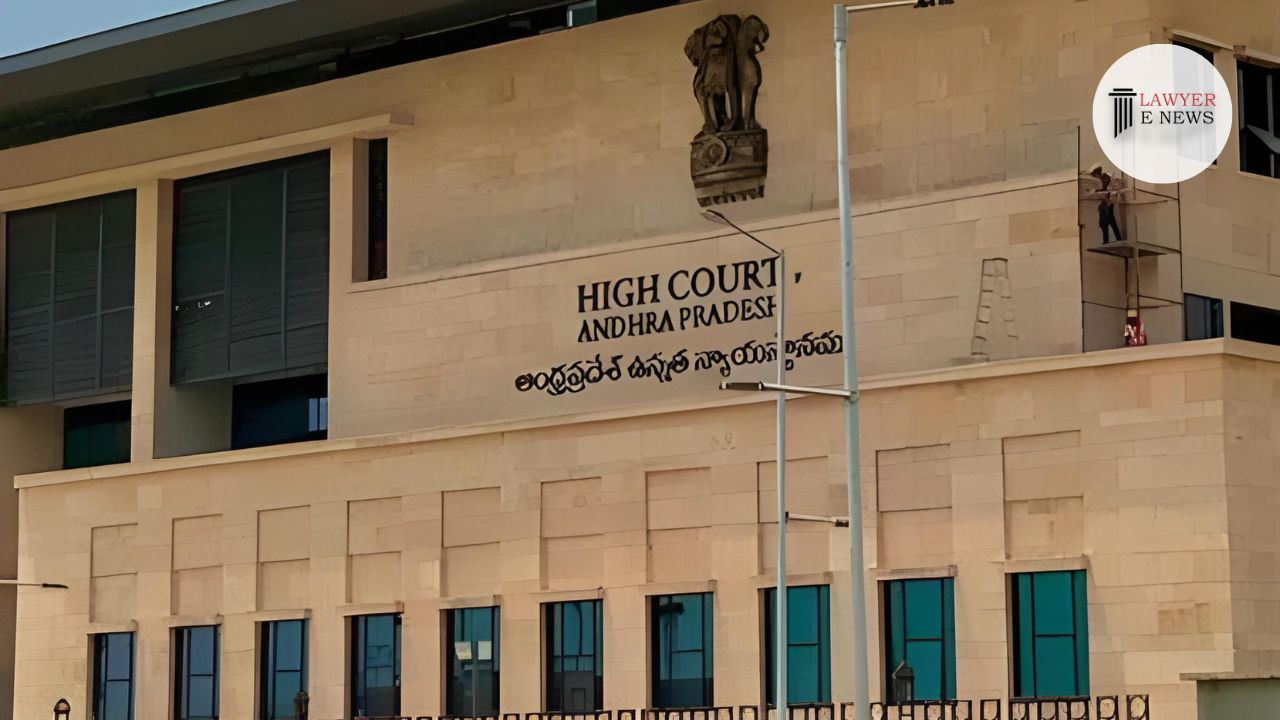-
by Admin
15 February 2026 5:35 AM



Andhra Pradesh High Court in Mandava Janardhana Rao (Deceased) & D. Durga Bhavani v. K. Venkata Satyanarayana (Deceased) & Others, dismissed an appeal seeking specific performance of a sale agreement for agricultural land. Justice Venuthurumalli Gopala Krishna Rao upheld the trial court’s decision that the suit was time-barred under Article 54 of the Limitation Act, 1963. However, the Court granted an alternative relief, ordering the defendants to refund the advance payment with interest, citing Section 22 of the Specific Relief Act, 1963.
The original plaintiff, Mandava Janardhana Rao, entered into a sale agreement with K. Venkata Satyanarayana on November 2, 1979, to purchase 1.80 acres of land at Rs.89,000 per acre. The plaintiff paid an advance of Rs.20,000, with the balance due within 40 days (by December 12, 1979). The seller agreed to obtain necessary permissions from the Urban Land Ceiling Authority (ULCA) and to vacate a shed on the land. However, the plaintiff failed to take any action within the stipulated time or demonstrate readiness to complete the transaction. The plaintiff issued notices to the seller in 1982 and 1987, but eventually filed the suit in 1988—over eight years after the agreement date. The trial court dismissed the suit as time-barred, prompting this appeal.
The High Court confirmed that the suit was time-barred. Under Article 54 of the Limitation Act, a suit for specific performance must be filed within three years from the date fixed for performance, or from the date the plaintiff notices that performance is refused. In this case, the contract set December 12, 1979, as the deadline for payment and completion of the sale, but the plaintiff waited until 1988 to file suit.
Justice Venuthurumalli cited Usha Devi v. Ram Kumar Singh to reiterate that time limits in property transactions are crucial, and delay in filing for specific performance, particularly in real estate matters, undermines the claim. The Court found no evidence that the plaintiff attempted to perform his obligations or was continuously ready and willing to complete the sale within the stipulated time.
The Court examined whether the plaintiff had been ready and willing to perform his contractual obligations as required under Section 16(c) of the Specific Relief Act, 1963. The plaintiff had only paid a partial advance (Rs.20,000 out of a total consideration of Rs.1,60,200) and failed to pay the balance or make any substantive moves towards performance by the stipulated deadline. Notices sent years after the contract date did not suffice to demonstrate a continuous readiness or willingness to perform.
The Court referred to Swarnam Ramachandran v. Aravacode Chakungal Jayapalan, which emphasizes that even if time is not the essence in real estate contracts, performance must occur within a "reasonable time." Given the plaintiff’s significant delay and lack of action, the Court concluded that he was not diligent in pursuing the contract.
While specific performance was denied, the Court granted an alternative remedy of refunding the advance amount with interest. Section 22 of the Specific Relief Act allows for a refund if the main relief of specific performance is refused. The Court ordered the defendants to refund the Rs.20,000 advance with 6% interest per annum from the date of the agreement (November 2, 1979) until payment, reasoning that the plaintiff was entitled to recover his advance payment even though he had delayed in pursuing specific performance.
The Court noted that in real estate agreements, even when time is not explicitly made of the essence, a reasonable time for performance is implied. Referring to K.S. Vidyanadam v. Vairavan and Chand Rani v. Kamal Rani, Justice Venuthurumalli emphasized that the plaintiff’s prolonged inaction (over eight years) went beyond a reasonable period, especially given that he took no substantive steps to fulfill his contractual obligations within the initial timeframe.
Appeal Dismissed with Refund of Advance Payment The High Court dismissed the appeal, upholding the trial court’s ruling that the suit was time-barred and that the plaintiff failed to show readiness and willingness to perform the contract. However, it granted an alternative remedy, directing the legal representatives of the deceased defendant to refund the advance payment of Rs.20,000 with interest at 6% per annum from the agreement date.
Strict Adherence to Limitation Period: The judgment reinforces the importance of filing suits for specific performance within the limitation period, particularly in real estate transactions.
Readiness and Willingness Requirement: Plaintiffs seeking specific performance must demonstrate continuous readiness and willingness to perform their part of the contract.
Alternative Relief of Refund: Courts may grant a refund of the advance payment as an alternative remedy when specific performance is not feasible, based on Section 22 of the Specific Relief Act.
The High Court’s decision highlights the principle that contracts for the sale of immovable property must be pursued with diligence and within a reasonable time. While the Court denied specific performance due to the plaintiff’s delay and lack of readiness, it allowed a refund of the advance payment as a measure of fairness. This judgment underscores the significance of adhering to contractual timelines and filing claims promptly to avoid losing substantive rights.
Date of Decision: November 5, 2024
